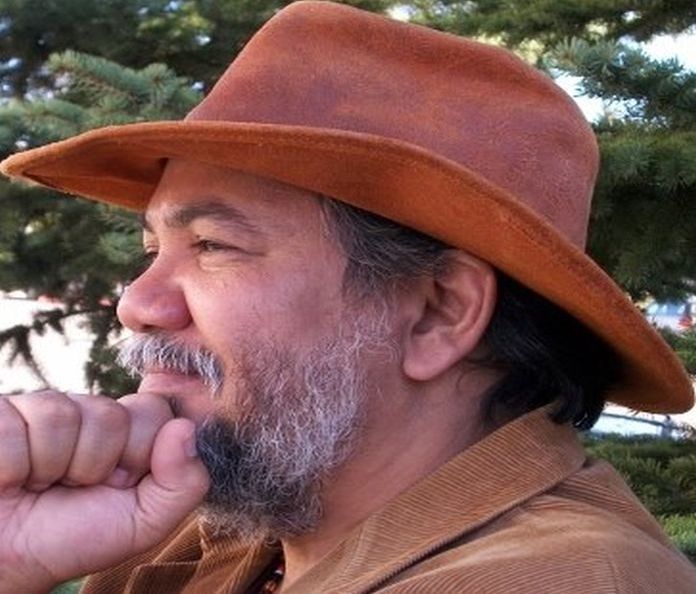By Johnny Coomansingh
In the annals of Chutney music in Trinidad, Adesh Samaroo in 2003 presented the song, ‘Rum till I die.’ The refrain rang with the words: “Rum till I die. Is rum till I die. She tell mih she doh love mih and that’s the reason why.” I am positive that during the rendition of the feisty song that rum flowed like water in the crowd.
This was a ripping song probably about someone who was afflicted with ‘tabanca.’ In Trini slang, tabanca refers to a painful, almost unbearable feeling of unrequited love that causes unbalanced behavior. I have seen people with tabanca and it certainly exhibits a suffering that is unexplainable.
Some people become anorexic because of tabanca, while others take their lives because of tabanca. While holidaying in Canada, I wrote a calypso titled: Phoolbassiya – Guyana Tabanca. In the lyrics I made mention of the grief, the pain, the stress, and the tabanca that a Guyanese fellow suffered.
Phoolbassiya, his girlfriend, left him for another man:
“Phoolbassiya yuh gone Trinidad
Yuh gone and leave mih everyday ah sad
Yuh pick up with a nedder Chaguanas man
Now every day ah crying with tears ah washing mih hand.
Phoolbassiya ah does miss yuh smile,
Look yesterday ah walk more than 50 mile,
Ah sit dong dotish under ah mango tree,
Studying yuh roti and yuh talkaree.”
Although the tabanca ‘infected’ individual seeks for an excuse or a good reason to imbibe copious libations of several brands of rum including Vat 19, Old Oak, Royal Oak, White Oak, Magic White Light, Black Label, Caroni Puncheon Rum or even Bay Rum, “Rum till I die” is not a good mantra.
‘Rum till I die’ is especially not the best solution for the miscreants who insist that they must drink alcoholic beverages, get drunk, and then drive on our roads and highways. One evening a drunken taxi driver who came from the Quinam Beach hit my car on the Siparia-Erin Road. He rubbed down the entire side of my newly painted car. It could have been worst. He lost control!
I am not against anyone who wants to get plastered with rum, whiskey, brandy, beer, babash (Bush Rum) or any other kind of spirituous liquor. An alcoholic husband once told his dutiful church-going wife: “You are spiritual but I am spirituous.” Being spirituous is all well and good if you are not behind the steering wheel. Some time ago, the charges laid by magistrate Rehana Ali against drunken drivers were good examples to others who chose to flout the law.
Charge them! Give them the full penalty! Relieving them of their driver’s permit is also very applicable here. Make them pay! They must know that driving under the influence (DUI) of alcohol or any illegal substance is wrong. Deadly wrong! People get hurt in vehicular accidents. People also die! If vehicle drivers want to ‘lime,’ (hang out) and eventually become inebriated, please nominate a designated driver or pay a taxi. Call “Uber!” The mantra should be ‘Drive to stay alive.’ Thank you Your Honour, for your extremely valuable and powerful judgment.
Nevertheless, there is more to take care of on this Trinidadian landscape your honour. Your honour, how about slapping some real serious and heavy charges or penalties on people who continue to litter our highways, roadways, drains, rivers, vacant allotments, and beaches? I have seen it all! There is a ‘rumour’ a whisper, that there are litter laws and litter wardens in this country. Is this true? Are these laws still applicable? Can we not catch these people and make them pay?
As is my custom, a couple months ago I visited the Toco Lighthouse. Indeed, indeed, there was a large billboard on the compound showcasing Keshorn Walcott, our Toco born javelinist, and an Olympic Gold Medalist. This mural offered a glimmer of hope for the area, but alas, there was no respect for such greatness!
Even though there were garbage containers on the compound, it was appalling to see the litter stashed everywhere in the shrubbery as I walked down the narrow track to the big rock behind the lighthouse. Little sea grape trees, coastal grass and underbrush do not feed on plastic bottles, soda cans, and Styrofoam cups and plates. In the crevasses of the ‘big rock’ where I stood to ‘throw some line’ during my fishing expeditions, I saw the horror of beer bottles, soda bottles, beer cans and soda cans, yes, the nasty and insensitive visitors found spaces to stick their trash. And there is so much more to witness on this island of Trinidad. Thank heavens, Tobago is not as bad.
Drains, watercourses, and beaches from Cedros to Toco, from Sangre Grande to Guayaguayare, from Chaguaramas to Balandra, Port of Spain to San Fernando are all littered with plastic bottles, cans, Styrofoam containers, glass bottles, paper cups and plates. Why can’t we make some arrests? Why haven’t we charged anybody as yet with these crimes against the society? It seems that the Environmental Management Authority (EMA) is sleeping.
Sad to say, from what I have seen, the Manzanilla Beach is now becoming, or has become, the latest La basse (dumpsite). Trinidad in general is now shaping up to become the la basse of the Caribbean. Some people are ‘cool’ with the filth surrounding them. I am not. My mother taught me to keep the candy wrapping paper in my pocket until I get home. Anais Nin said: “We don’t see things as they are. We see things as we are.” Your honour, we need to reverse this eco-pollution trend. Jean Jacques Rousseau once said: “Reverse the usual process and we may always almost do right.”





